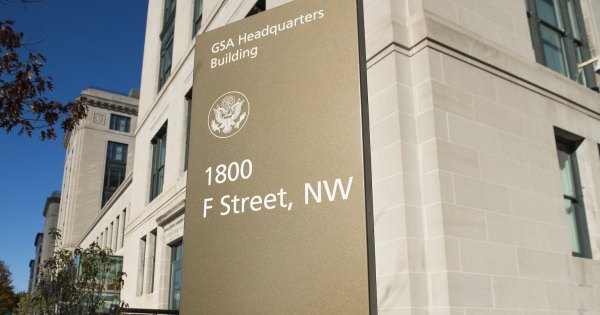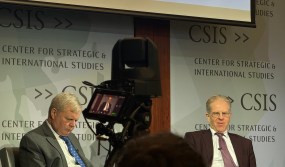GSA launches AI, virtual reality digital communities
The General Services Administration launched Wednesday two new interagency digital communities — one on artificial intelligence for citizen services and another on virtual or augmented reality.
GSA’s digital communities have more than 10,000 federal memberships across different mission fields, such as mobile development, multilingual services and citizen science.
“Next generation digital public services powered by government data and new advances in artificial intelligence, including chatbots, can help improve and expand our customer service initiatives, and make our public services more open, responsive, informative, and accessible,” the GSA blog post reads.
Booz Allen Hamilton this summer claimed that in the next five years, messaging chatbots could become the government customer service norm.
“What we’re trying to do is push our federal clients to actually move into these areas because not only does it simplify the interaction with citizens, it’s actually a cost-reduction opportunity around these programs,” Michael Isman, vice president in Booz Allen’s Strategic Innovation Group, told FedScoop.
[Read more: Techies: In 5 years, chatbots could become a govt customer service norm]
Agency demand for more training using AI, chatbots and machine learning in customer service is growing, GSA’s announcement said.
“Whether helping field tens of thousands of questions during an emergency, or democratizing data through devices powered by Alexa, Siri, and other natural voice recognition systems, citizen engagement will quickly expand from social media and other peer-to-peer services into increasingly personalized, automated delivery,” the announcement says.
The community will allow for agency officials to research together and test “the latest advancements,” the announcement says, “while sharing best practices on approaching emerging policy, security and privacy considerations.”
The virtual reality community is designed to refine business cases and analyze pilot programs in the virtual and augmented reality space.
“Federal agencies are eager to share their ideas for how to use this new medium, from treatment of PTSD through virtual therapy and educating farmers on the installation of solar panels, to disaster management preparedness and response,” the announcement notes.
One agency exploring virtual reality now is the Defense Advanced Research Projects Agency. It recently built a “huge” three-room virtual reality system in Boston, Massachusetts, which monitors soldiers’ brain activity and biometrics “to see how they deal with stress under fire,” Trung Tran, a program manager at the agency, said at an event in September.
“One of the things that we’re really concerned about is how a soldier would handle stress differently — that’s what [posttraumatic stress disorder] comes from,” Tran said. “And so you don’t know until the bullets fly whether you run away like in ‘Saving Private Ryan,’ or if you run into the battle. And it matters to the soldiers around you which one you do. And so part of the training is to evaluate the soldier for their effectiveness in combat.”
[Read more: At DARPA, virtual reality is more than a toy]
Along with the announcement of the two communities, GSA launched an open U.S. Digital Registry Portal of 10,000 official U.S. federal government accounts and mobile apps.
The single dashboard allows people to search and export data on federal accounts on Twitter, Facebook, Yelp, GitHub, YouTube, Socrata and more by “agency, language, platform or tag.”






